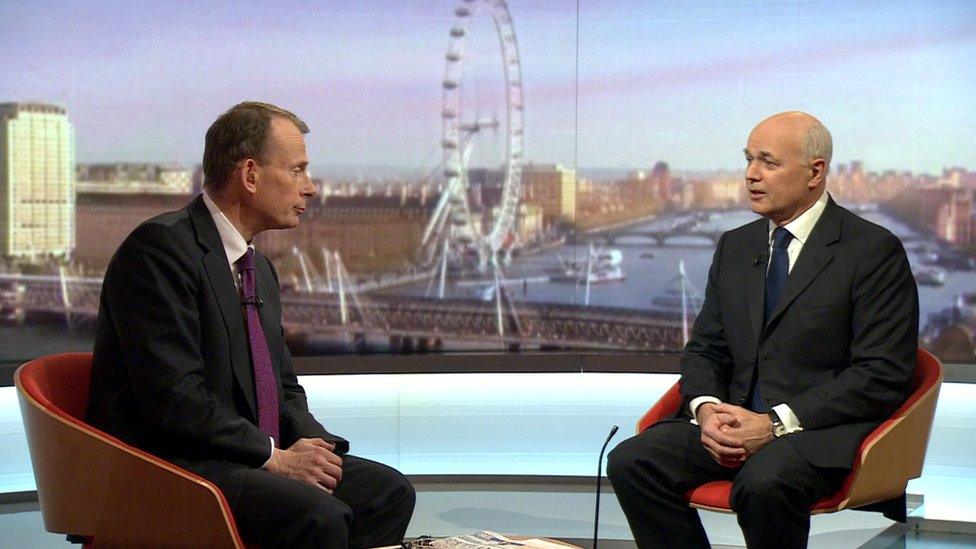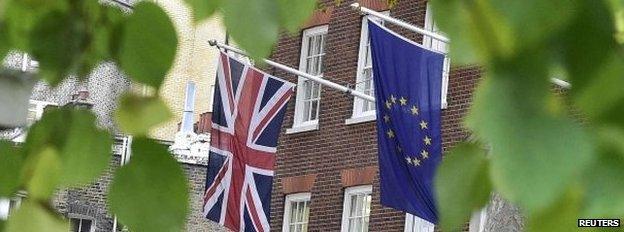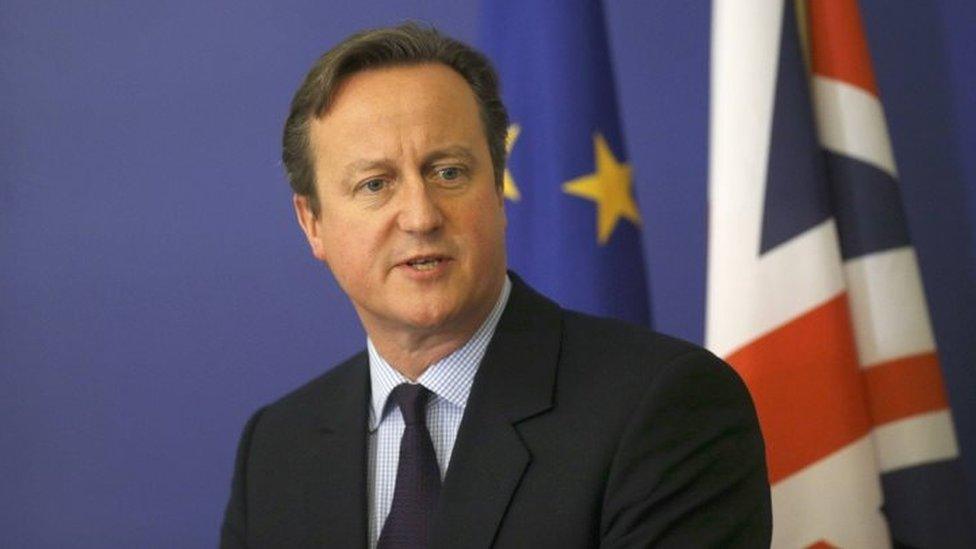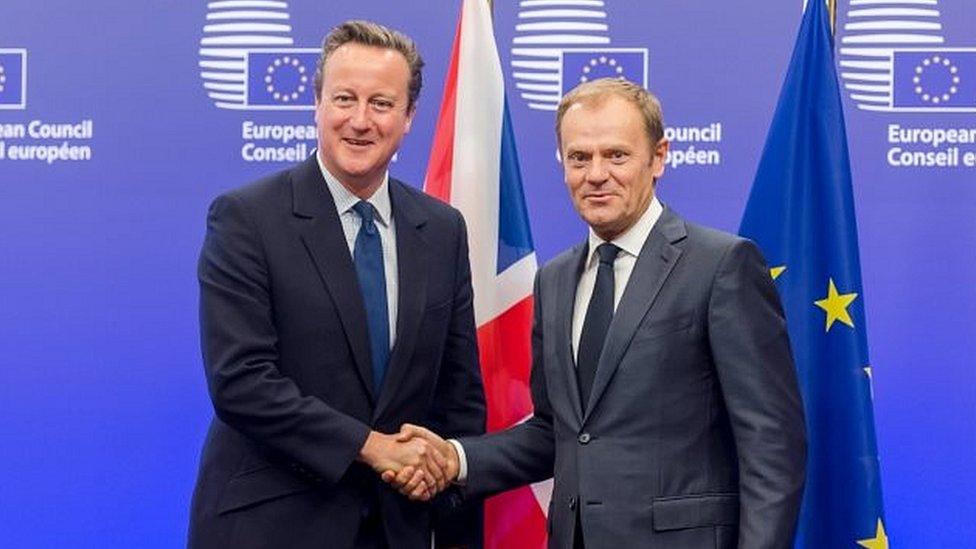Duncan Smith has 'complete faith' in PM's EU negotiations
- Published

Mr Duncan Smith said requiring migrants to contribute more to the welfare system was crucial to the prime minister
Iain Duncan Smith has said he has "complete faith" in David Cameron's ability to secure welfare reforms as part of the UK's EU renegotiations.
Despite reports of opposition to UK efforts to limit EU migrants' access to in-work benefits, the work and pensions secretary said he remained "upbeat" about plans to curb "benefit tourism".
The PM, he said, wanted a deal he "could sell to the British people".
But one MP said the UK's overall demands were "trivial" and "lame".
European Council President Donald Tusk is due to write to all EU leaders on Monday, outlining his assessment of Britain's demands for EU reform. He has said reaching an agreement in all these areas will be "very tough".
The prime minister wrote to Mr Tusk last month setting out the UK's objectives in four areas - they include restricting EU migrants' access to in-work benefits such as tax credits for four years, a move opposed by several EU states.
'Sign of strength'
Mr Cameron has said a referendum on the UK's future in the EU, in which voters will be asked whether they want to stay or leave, will be held before the end of 2017.
But he has not named the exact date yet amid uncertainty about the outcome of the negotiations and when they will conclude.
Mr Duncan Smith told the Andrew Marr show he was a "little surprised" at media reports that the UK's negotiations were faltering saying it was a "sign of strength" that the prime minister was prepared to take his time to get the deal he wanted.
"I have complete faith in the prime minister wanting to deliver on what he said he would at the time of the election... He has always said from the word go that he wasn't going to go over there and go through the motions, he actually wanted to deliver something that benefited Britain," he said.

EU referendum: What you need to know

The UK is to have a referendum by the end of 2017 on whether to remain a member of the European Union or to leave. The vote is being proceeded by a process of negotiations in which the Conservative government is seeking to secure a new deal for the UK.
Explained: What David Cameron wants from the EU negotiations
Guide: All you need to know about the referendum

Mr Duncan Smith claimed there was support in Germany and other EU nations for limiting EU migrants' access to benefits.
"Behind closed doors, nearly every single developed country in Europe wants to see some kind of end to the idea of people just popping around and taking benefits in different countries," he said.
'Trivial'
And he played down talk that the UK could be forced water down its proposals or even restrict in-work benefits for UK claimants to make sure its proposed curbs on EU migrants were not deemed illegal.
He added: "This has never been part of our proposal. We will wait and see what is decided."
Mr Cameron has said he wants to remain within a "reformed EU" but more than 50 Conservatives MPs are thought likely to join the "Out campaign" if he fails to secure the reforms he wants.
Conservative MP Bernard Jenkin, who is vice -resident of the Vote Leave campaign which wants the UK to exit the EU, said the renegotiation process was "very lame" and what the prime minister was seeking was "relatively trivial".
Speaking on the Sunday Politics programme, he said: "What the prime minister is negotiating about will not change the course of the European Union or the course of the United Kingdom within the European Union.
"They are relatively trivial, rather complicated but relatively trivial negotiation demands... OK, he gets the deal by February - it won't change the price of fish."
- Published3 December 2015

- Published12 November 2015

- Published30 December 2020
